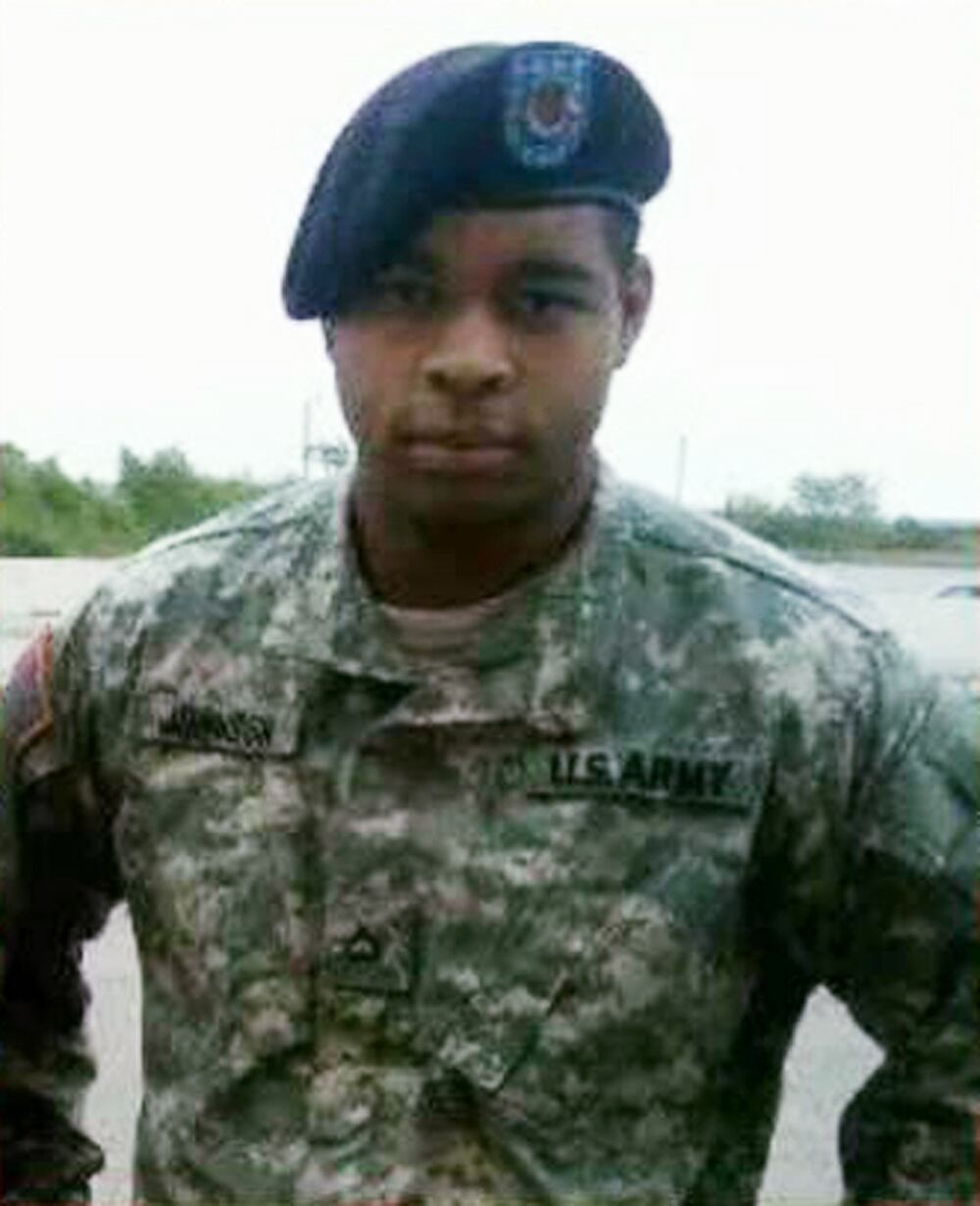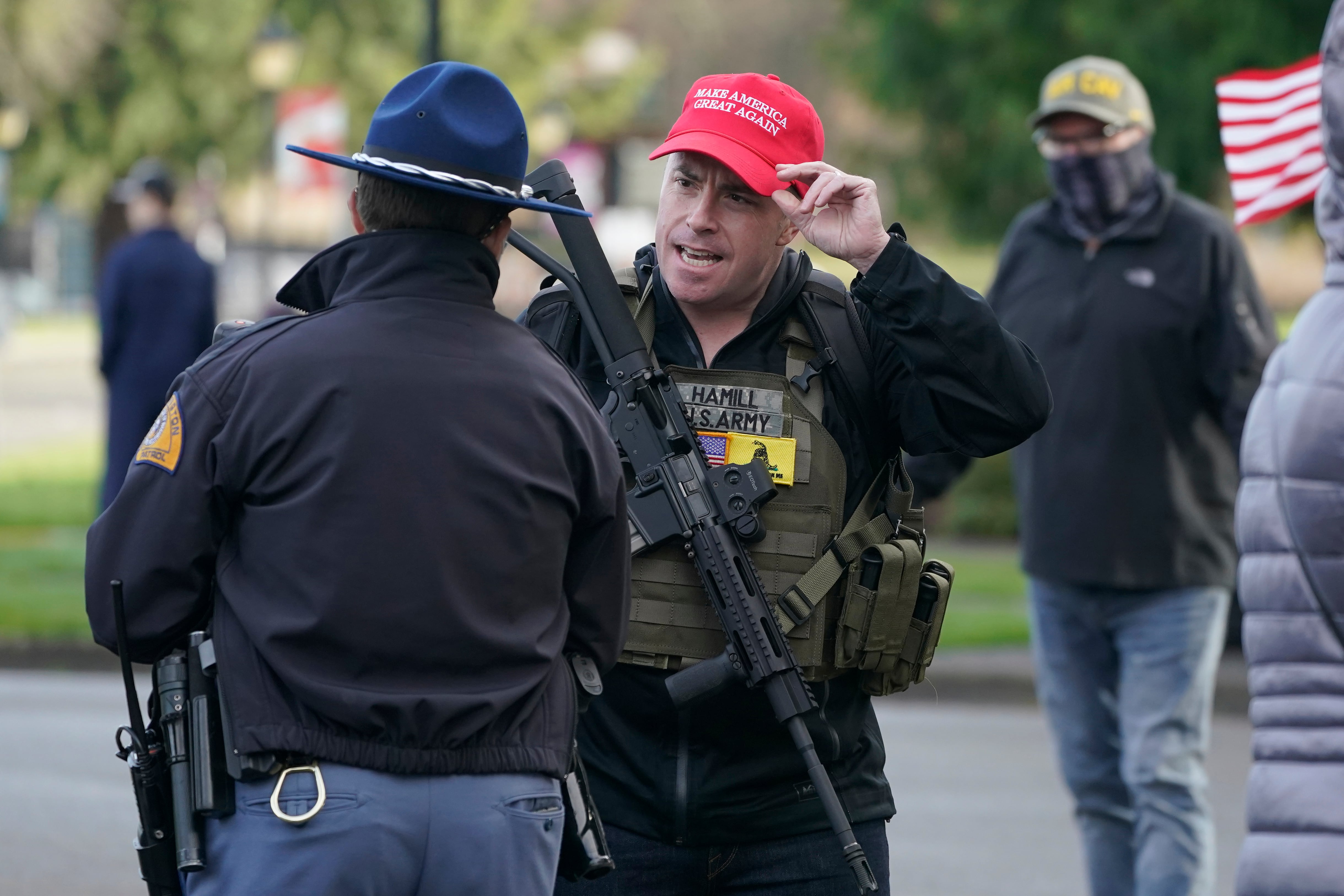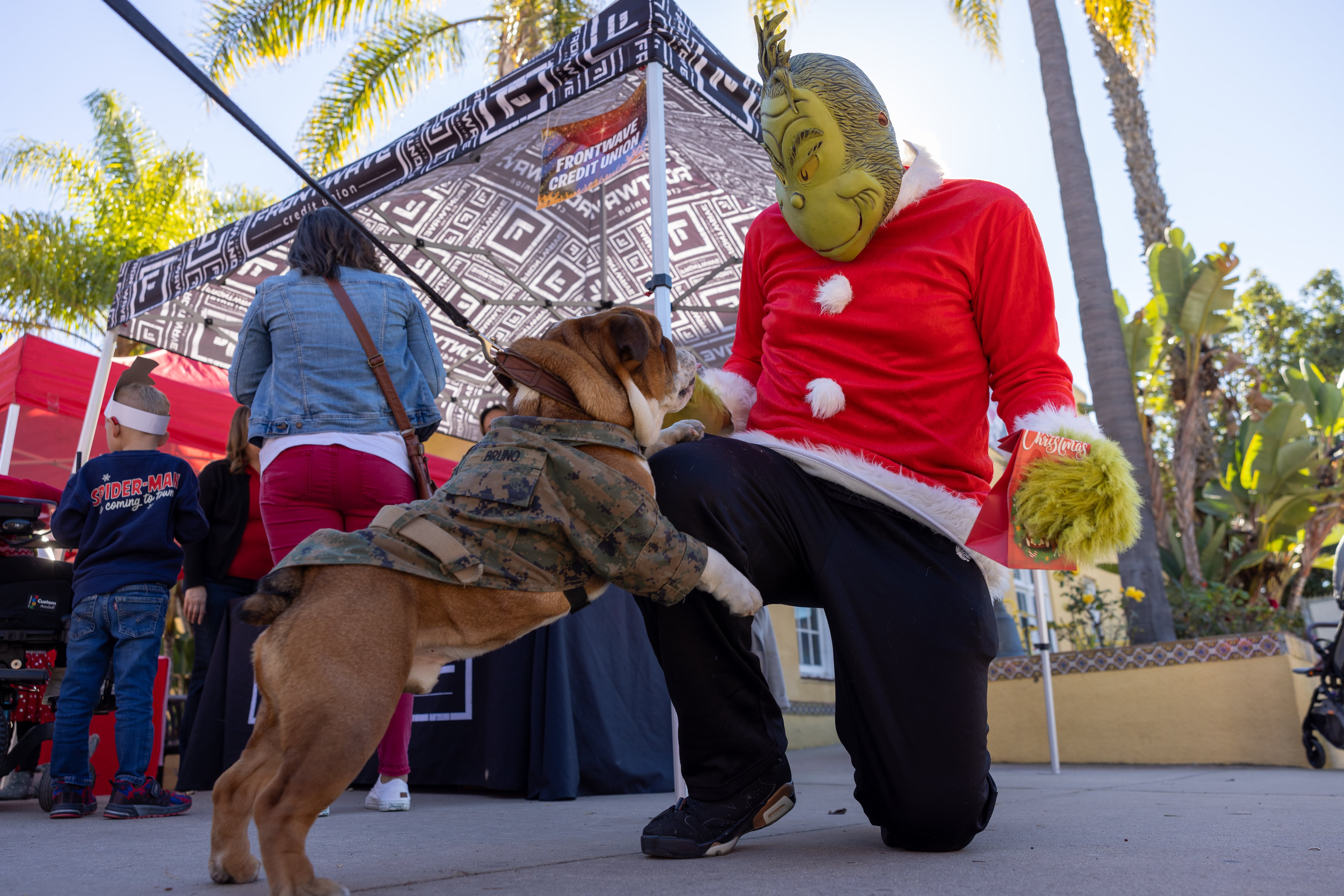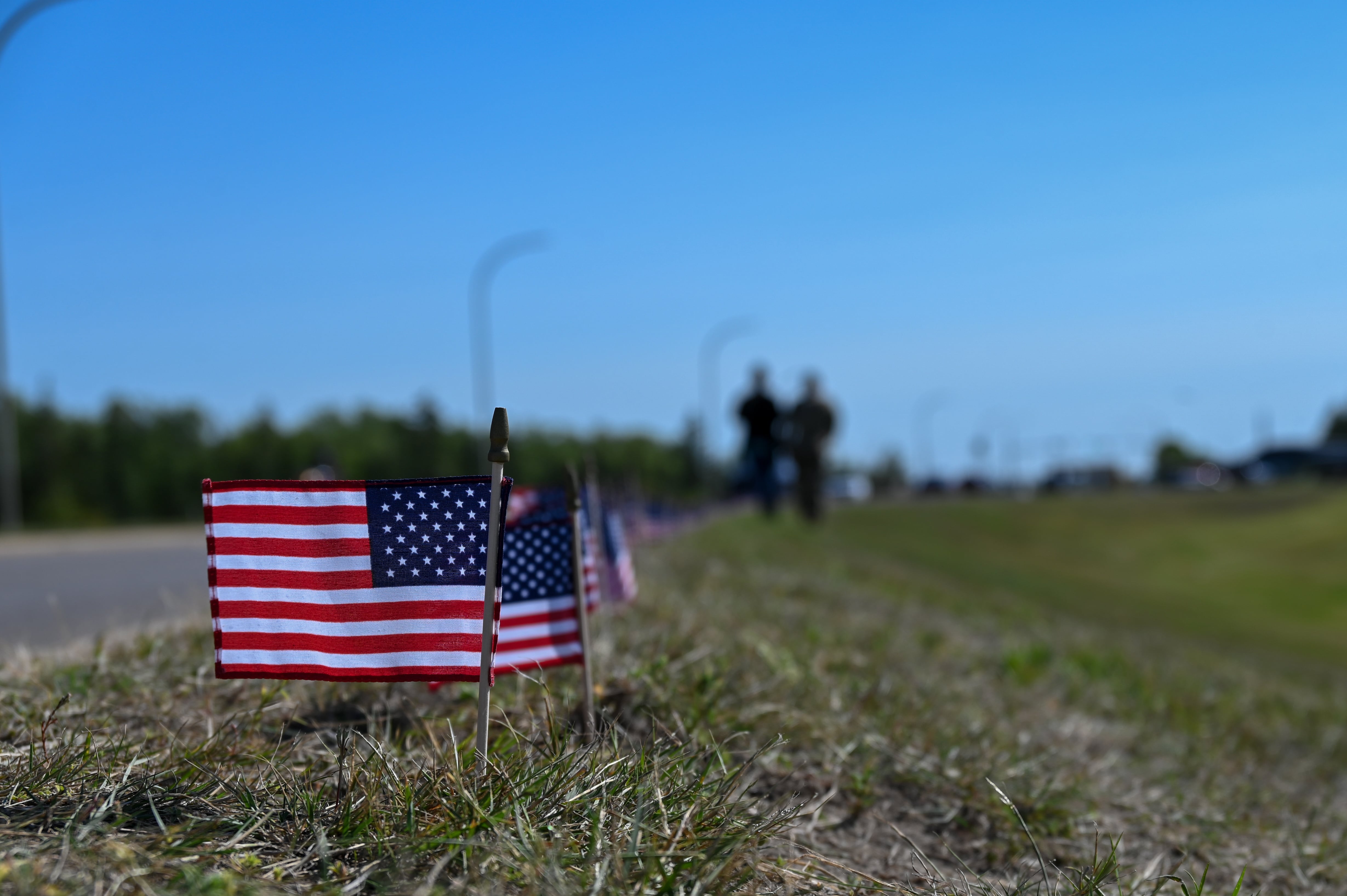This month's shooting deaths of police in Baton Rouge, La., and Dallas by former servicemembers who saw combat in Iraq and Afghanistan comes as the Army is trying to better understand why up to 40 percent of troops return from war struggling with anger and aggression.
Police say rage may have driven Gavin Long, 29, who served five years in the Marine Corps, to kill three police Sunday and Micah Xavier Johnson, 25, a former Army reservist, to fatally shoot five officers on July 7.
Whether there is a link between their military service and the shootings is unknown. And military researchers have been studying the issue of anger for almost a decade.
Since 2007, a series of studies have shown 14 percent to 40 percent of troops surveyed after returning from war or while in the war zone report signs of anger such as kicking, smashing or throwing things, or threatening someone with physical violence. Anywhere from 4% to 18% were getting into fights.
Long, who was deployed to Iraq for eight months in 2008 and rose to the rank of sergeant, had previously posted a video on the Internet, describing protests against police as futile. He said he wanted to follow in the footsteps of Nat Turner, who led a slave revolt in 1831, and Malcolm X, a black Muslim civil rights leader during the 1950s and early '60s.
Micah Xavier Johnson, an African-American former Army reservist who served seven months in Afghanistan, told a negotiator during an hours-long standoff with law enforcement in Dallas he was angry over recent police shootings of black people and wanted to kill white officers. When negotiations failed, police used a robot carrying an explosive device to kill Johnson.
Johnson had fired shots in early July during a peaceful protest over the deaths of black men Alton Sterling, 37, and Philando Castile, 32, by white officers in Louisiana and Minnesota this month.
In recent years, the Walter Reed Army Institute of Research has drawn on its longtime collaboration with scientists at Tel Aviv University in Israel to explore whether this tendency toward anger and aggression can be reduced in soldiers after they come home.
"The end game is to be able to develop a targeted intervention to basically reduce the risk of anger and the expression of aggressive behaviors," said Phil Quartana, an Army research psychologist leading the effort.
"We're looking to figure out what role does anger and aggression play in how soldiers adjust over time and also who's at risk," said Amy Adler, an Army clinical research psychologist, who has co-authored many of the studies. "It's not that every soldier is equally at risk."
Adler said while military studies show the presence of anger and aggression in some troops returning from war, it remains uncertain whether those emotions reach the kind extreme behavior exhibited in the recent spate of shootings of police.
"I don't think we know that," Adler said.
One of the first research efforts uncovering the presence of anger in combat veterans was a 2007 study showing results from surveys where soldiers returning from Iraq were asked such questions as whether they become so angry that they break things, feel like they're on the verge of losing control of their anger or are unable to control an urge to harm others.
The results revealed that 9.44% of approximately 500 soldiers surveyed reported signs of anger immediately after leaving war. As months passed, the number of angry soldiers grew to 19.44% showing signs, according to the research. Subsequent studies in 2010 and 2013 show even higher rates of anger.
Researchers say it remains unclear what causes the anger and aggression, although it can be linked to combat-zone ailments, including disrupted sleep patterns, recurring nightmares and post-traumatic stress disorder (PTSD).
Walter Reed began a collaboration five years ago with scientists at Tel Aviv University to see if anger levels in soldiers could be identified and reduced. Yair Bar-Haim, a professor and research leader at Tel Aviv University, had shown success in reducing the rate of PTSD in Israeli soldiers using a computerized treatment program administered before the soldiers went to war. The results showed a reduction in PTSD by two-thirds.
The PTSD research, funded largely by the U.S. Army, was published this month in Psychological Medicine. About five years ago, when Bar-Haim was in the midst of studying PTSD, Army scientists asked if he could apply the same computer-program science to dealing with anger. Adler approached Bar-Haim about the idea because she was concerned anger and aggression was more prevalent than PTSD, and capable of disrupting soldiers' professional and personal lives. Other conventional treatments for anger, such as anger-management classes, have not been that successful, researchers said.
Bar-Haim agreed, and said his research shows that it might be possible to reduce anger levels among soldiers after war.
"The preliminary tests show promise," Bar-Haim said, adding that the U.S. Army seems "very serious" about overcoming the prevalence of anger among combat veterans. "They're really invested in trying to understand these problems and solve them."
Long, a Kansas City resident, said in a recent YouTube video the only way fighting oppression and bullies has been successful historically is "through bloodshed."
"Zero have been successful by simply protesting. It has never worked," he said. "It never will. You have got to fight back, that is the only way the bullies know to quit."
After opening fire on police Sunday, Long was killed at the scene. The attack occurred on his 29th birthday.
A Texas native, Johnson joined the Army Reserve in 2009 where he served as a carpentry and masonry specialist and deployed to Afghanistan from November 2013 to July 2014.

This undated photo shows Micah Johnson, who was a suspect in the slayings of five law enforcement officers in Dallas on July 7, 2016. An Army veteran, Johnson served one tour in Afghanistan.
Photo Credit: Facebook via AP
During his time in Afghanistan, he was accused of harassing a female soldier and Johnson's deployment was cut short, his military lawyer, Bradford Glendening, told The Associated Press. Stephen Xenakis, a psychiatrist and retired Army brigadier general, said Johnson should have undergone a psychological evaluation following the sexual harassment charge. The Army has declined to release Johnson's medical records.
Johnson left with an honorable discharge in April 2015, according to his service records. His parents later told TheBlaze their son seemed changed. His mother, Delphine Johnson, described him as a "hermit."
"The military was not what Micah thought it would be," she said. "He was very disappointed."
Dallas police described him as a "loner" and during a search of his Mesquite home, investigators found bomb-making materials, ballistic vests, rifles and ammunition.
Stephen Xenakis, a psychiatrist and retired Army brigadier general, said soldiers don't have to be exposed to combat during deployment to suffer psychological difficulties coming home.
"These are young people. It's just a huge shift in every aspect of their life," Xenakis said of the deployment experience. "It's a foreign environment. Even if they're not directly exposed to the combat, they see and hear things that can really shake them in certain ways."





